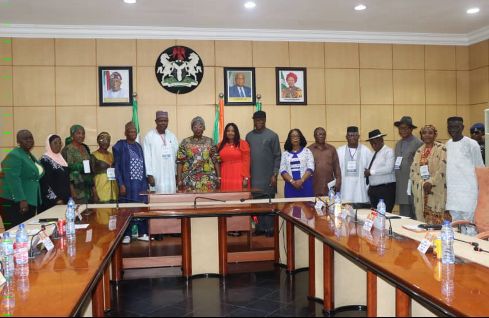
The National Senior Secondary Education Commission (NSSEC) recognizes that effective stakeholder engagement is fundamental to the successful transformation of Nigeria’s senior secondary education system. NSSEC actively collaborates with a wide range of stakeholders at the federal, state, and community levels to ensure inclusivity, ownership, and sustainability of its programs and policies.
Key Stakeholder Groups
- Federal Government Ministries and Agencies
- Federal Ministry of Education (FME) – Policy direction and oversight
- Universal Basic Education Commission (UBEC) – Alignment with basic education structures
- National Board for Technical Education (NBTE) and National Commission for Colleges of Education (NCCE) – Curriculum linkages and teacher training
- State Governments and Education Boards
- Coordination with State Ministries of Education
- Support for the establishment of State Senior Secondary Education Boards (SSSEBs)
- State-level implementation of standards and reforms
- School Administrators and Teachers
- Feedback on policy and curriculum implementation
- Participation in capacity-building and training programs
- Frontline execution of school-level reforms
- Development Partners and Donors
- Technical and financial support (e.g., Google partnership on AI training)
- Joint monitoring and evaluation of project impact
- Advocacy and policy strengthening
- Civil Society Organizations (CSOs) and Non-Governmental Organizations (NGOs)
- Community mobilization and advocacy
- Promoting girls’ education, inclusivity, and rights-based education approaches
- Parents, Students, and Community Leaders
- Participation in policy dialogues and community forums
- Feedback mechanisms to improve education service delivery
- Promotion of local ownership of school initiatives (e.g., school farming)
- Private Sector and Industry
- Collaboration on skills development and career readiness programs
- Sponsorship of innovation challenges and school competitions
- Internship and mentorship opportunities for students
Engagement Strategies
- National Education Summits and Roundtables
- Stakeholder Mapping and Dialogue Sessions
- Joint Technical Working Groups
- Policy Consultation Forums
- Feedback & Grievance Mechanisms
Impact of Stakeholder Engagement
- Broader acceptance and implementation of NSSEC programs
- Alignment of education initiatives with local needs
- Strengthened accountability and transparency
- Enhanced resource mobilization and sustainability
